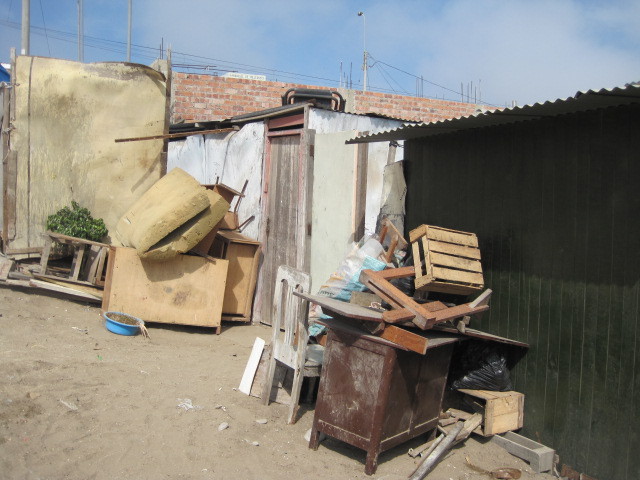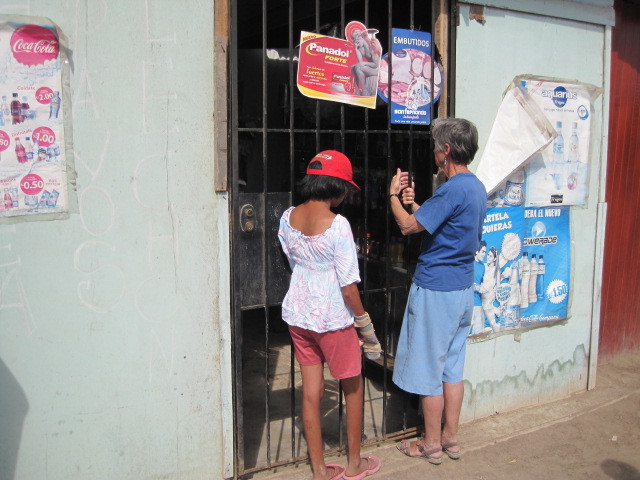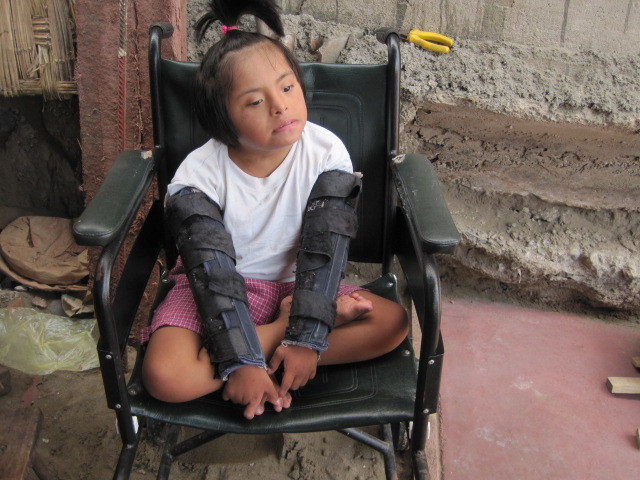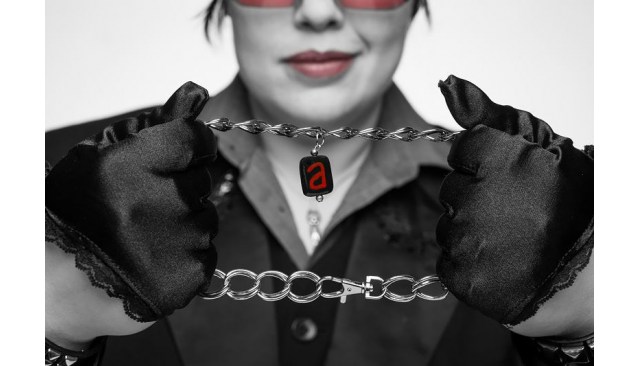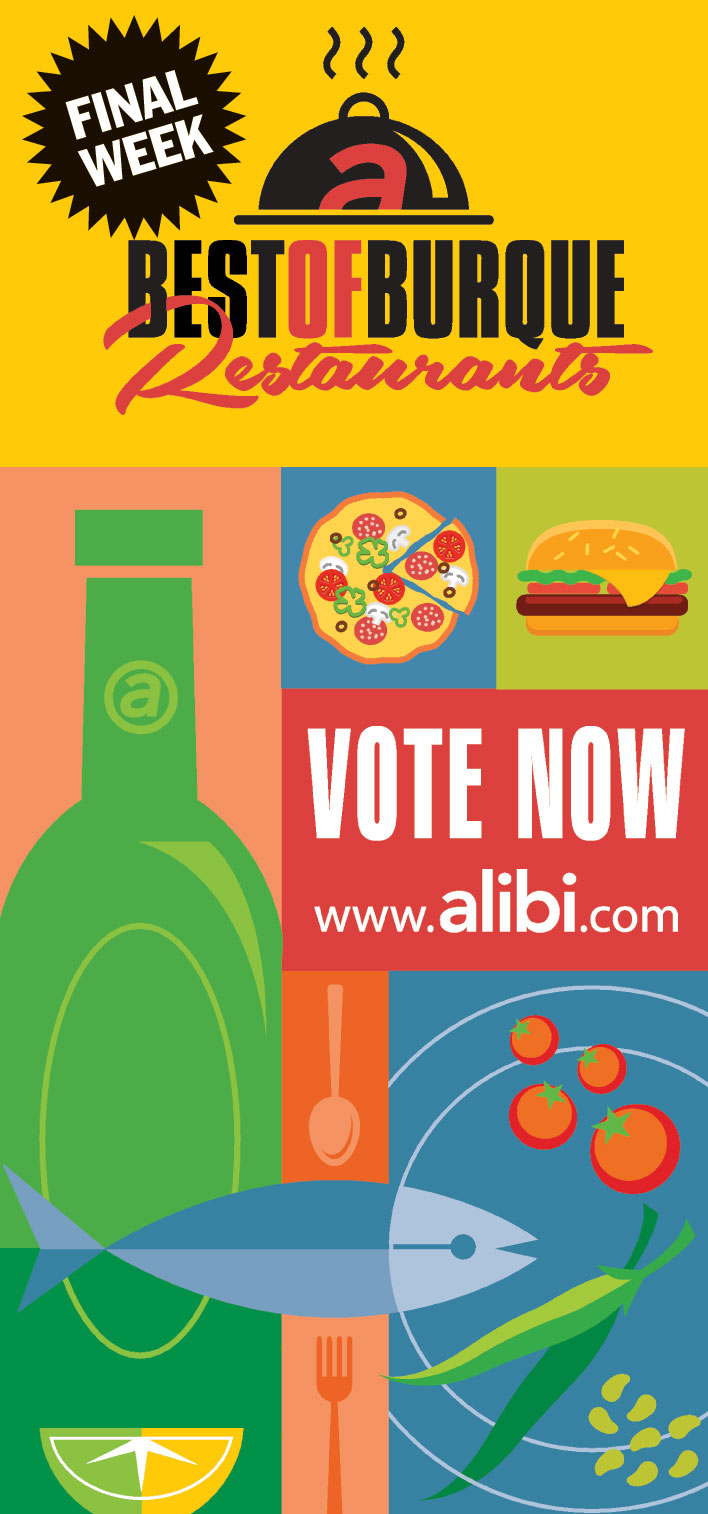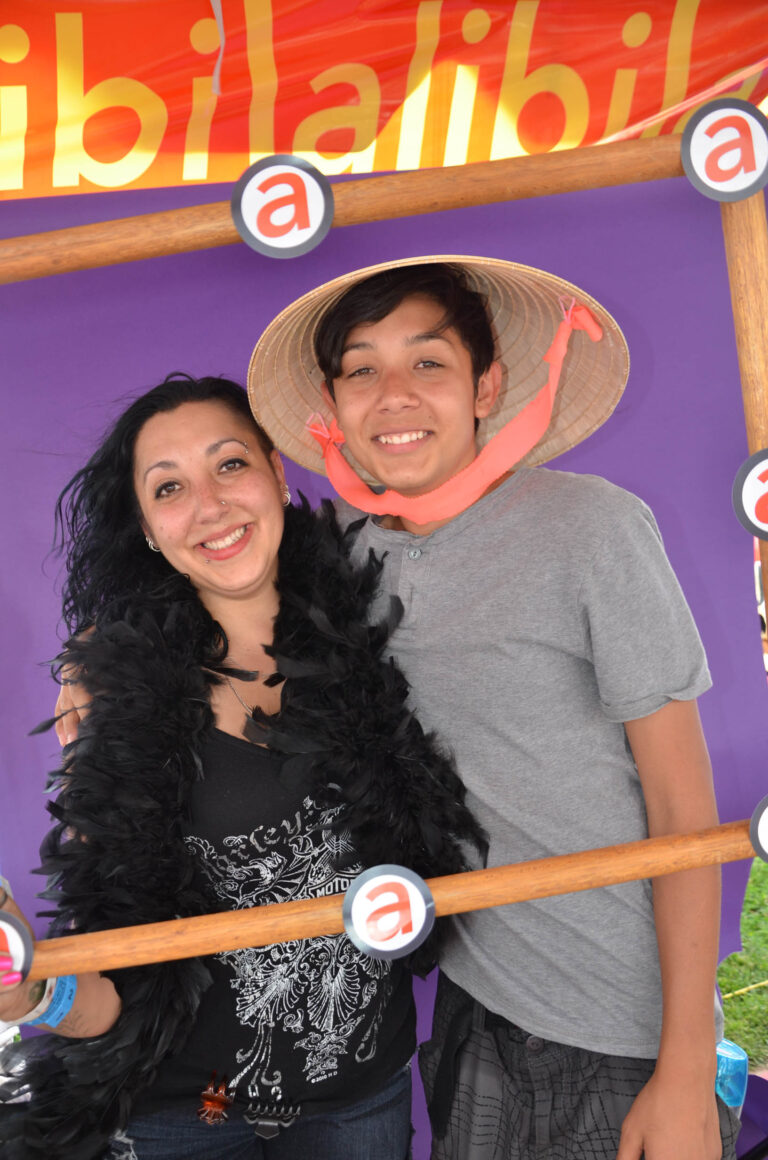The second part of my twofold volunteer assignment in Villa el Salvador is to go on home visits. These visits are the most interesting, and at times, the most heartbreaking part of my job.On the two days of the week that Los Martincitos is closed, I accompany Sister (Hermana) Jacci, the nun who has helped run this incredible program for the past ten years, on home visits to see abuelos who, because of illness, immobility, or lack of transportation, cannot not make it to the center.Hermana Jacci, as she is referred to, is in her late sixties, and has been a nun since she was 18. She was born in Pennsylvania, grew up in Brooklyn, and has worked on behalf of the of the Catholic Church in some extremely poor areas, including a stint in Puerto Rico, and one on the lower east side of Manhattan, in an area known as Alphabet City, where the poverty, drugs and crime were rampant at the time. She has lived in Villa el Salvador for the past ten years running the Los Martincitos program. She is, in my eyes and in the eyes of all those around her, the Mother Teresa of Villa el Salvador. She’s one of the most compassionate people I’ve ever had the good fortune to meet, and yet she can be tough as nails when she needs to be. I feel privileged to be working with her. She’s also the only person at my work assignment who speaks English, so she helps me understand what the abuelos are saying. When she speaks Spanish, which she does fluently, I can detect the slightest hint of a New York accent, which of course, I find wonderfully amusing.The homes we visit range from simple to downright primitive. Many have dirt floors. If there is more than one room, the rooms are often separated by a curtain or sheet. If there is no running water, there is usually some sort of makeshift outhouse outside in back of the house. Backyards are very tiny, and are usually filled with trash, rocks, building materials, a clothesline, and perhaps some animals like chickens, rabbits or guinea pigs. These animals are not pets, but meals. Bedrooms sometimes have several mattresses in them, lined up next to each other on the floor. One house we went to was very high up on a dirt hill. There were no steps leading to the house, so we had to walk over rocks and sand and boulders to reach the makeshift front door. (Remember, Viila el Salvador was built on one huge sand dune.) As even I had trouble navigating the path (or rather, lack of path), I don’t know how Hermana Jacci did it.We always ask if the person we are visiting has eaten anything that day. In one case, we went to a soup kitchen (called comedors ) to pick up food for an abuela who had nothing to eat in the house. In another case we went to check up on a man we had visited the week before who had a very bad case of tuberculosis, which apparently is quite common here. He was the skinniest man I had ever seen … barely more than a skeleton. He is not part of the Los Martincitos program as he is too young to qualify, but we will check on anyone who is in need, whether they are in the program or not. His daughter, a little girl of about ten, answered the door and told us that she and her two sisters (one of whom is extremely mentally and physically disabled) had had nothing to eat that day. Their parents weren’t home, as her mother had taken her father to the hospital that morning because he couldn’t breathe. We took her to a little store around the corner and bought eggs, milk and bread so she and her sisters could have a meal. (We are technically not supposed to do that, but sometimes compassion compels one to make an exception to the rule.)The store, which was no bigger than a bathroom, had an iron gate in front of it, which was locked. The store owner, rather then letting us in, asked what we wanted to buy (everything in the store was within arm’s reach), and passed the items through the bars of the gate. Hermana Jacci said this was common in Villa el Salvador, because people might steal things if the store owner allowed customers to actually come inside. Although there is a commercial district in Villa with stores that are accessible to anyone, in the poorer areas where we do our homes visits, the stores are very small and might only carry basics like bread, milk, eggs, beverages, snacks—and ALWAYS Inka Kola, the national soda of Peru. Most residents shop for their regular groceries in outdoor mercados, as there are no supermarkets in Villa. Hermana Jacci told me that when she goes grocery shopping, she tells the meat vendor which live chicken she wants, and he then kills it right in front of her. At least she knows her food is fresh!I’ve attached some photos of the family that I just described above. The first photo is the front of their house. The front door, a bit hard to locate, is white, and in the direct center of the photo. There is no roof in the first part of the house. The second photo is of Lucita (the little girl who answered the door) and Hermana Jacci buying food at the store that would not let anyone in. The third photo is of Lucita and her sisters. We’re not sure what is wrong with her wrist, but she always wears a brace on it. The last photo is of Nicole, Lucita’s mentally and physically challenged sister, She wears braces on her arms to prevent her from hurting herself, as she hits herself frequently when she doesn’t wear them. She normally is strapped into her chair with a scarf. The family has no resources to help her, but Hermana Jacci would like to discuss options with her parents. We will stop by again next week.I take photos during home visits only if I am given permission by the person living there. I have been admonished for taking pictures outside, because apparently it is dangerous to carry a camera in full view in some parts of Villa el Salvador. One volunteer had her camera stolen right out of her hands as she was snapping a picture while standing in the street. I try to be careful when I’m outside, but sometimes I can’t help myself when I see an interesting shot. I will try to send more photos from Villa.
Read the rest of the blogs in this series here.
